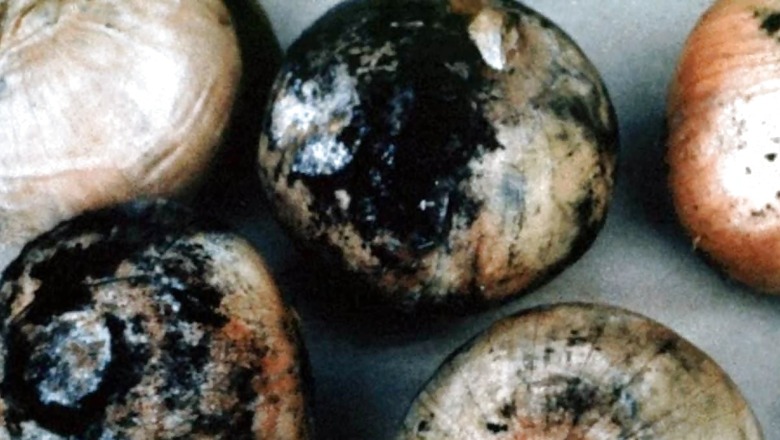
views
Onions are known to offer numerous health benefits, including the reduction of cancer risks and the promotion of healthy hair and skin growth. They belong to the Allium genus, which also includes leeks, garlic and chives.
Fluctuations in temperature can result in the formation of moulds on the skin of various fruits and vegetables, including onions. This black mould is caused by Aspergillus Niger, a common fungus found in the soil. Research indicates that black mould can possess toxicity but can’t be too severe for your health. Allergic reactions such as vomiting, nausea, headaches, stomach ache, and diarrhoea might occur.
Recently, concerns have arisen regarding the potential connection between consuming onions with black moulds and the development of mucormycosis (black fungus). This uncommon yet serious fungal infection is triggered by black mould. Primarily affecting individuals with sinus issues, it leads to one-sided swelling, fever, headaches, nasal congestion and black lesions on the nasal bridge. It can also extend to the lungs, causing symptoms such as cough, chest pain and breathlessness.
Experts suggest that affected areas can be trimmed and the onion consumed, but only if the whole of the onion is not affected by black moulds. When moulds become noticeable on the onion’s surface or any other vegetable, it means that microscopic roots have already proliferated throughout the vegetable. These affected regions remain unseen to the naked eye, while the remainder of the onion may appear clean.
Reports affirm that black moulds aren’t fatal but may induce irritation. Its sole presence does not singularly cause mucormycosis. Storing onions and other vegetables in the refrigerator is advised to prevent mould growth. Storing moulded onions alongside other produce in the refrigerator could result in cross-contamination, leading to mild infections.
Typically, black moulds manifest on the outer layer of the onion and can be effortlessly removed for consumption. However, if the inner layers of the onion skin are affected, discarding the onion is recommended.



















Comments
0 comment